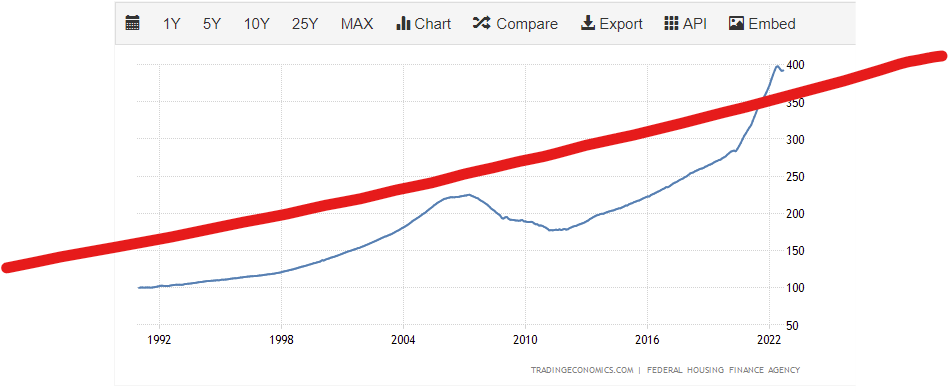Looking for a crash course, Housing Market 101.
How to gauge the crystal ball for future housing valuation...
Working within these sites for statistics... Based on what I see (as a rookie), It appears 2027-2028 may be an approximate time frame for the historical value to reach our recent peak home sales(?)...
Head/tails of where we were, are, and will be for the purchase of houses - future real estate valuations moving forward?
Real estate has always been a dependable "nest egg". Thoughts on the housing market?
Sites used:

 www.nar.realtor
www.nar.realtor
 tradingeconomics.com
tradingeconomics.com
How to gauge the crystal ball for future housing valuation...
Working within these sites for statistics... Based on what I see (as a rookie), It appears 2027-2028 may be an approximate time frame for the historical value to reach our recent peak home sales(?)...
Head/tails of where we were, are, and will be for the purchase of houses - future real estate valuations moving forward?
Real estate has always been a dependable "nest egg". Thoughts on the housing market?
Sites used:

Housing Statistics and Real Estate Market Trends
NAR provides housing statistics and real estate market trends on the national, regional, and metro-market level where data is available.
United States FHFA House Price Index
Housing Index in the United States decreased to 417.49 points in January from 417.79 points in December of 2023. This page provides the latest reported value for - United States House Price Index MoM Change - plus previous releases, historical high and low, short-term forecast and long-term...






